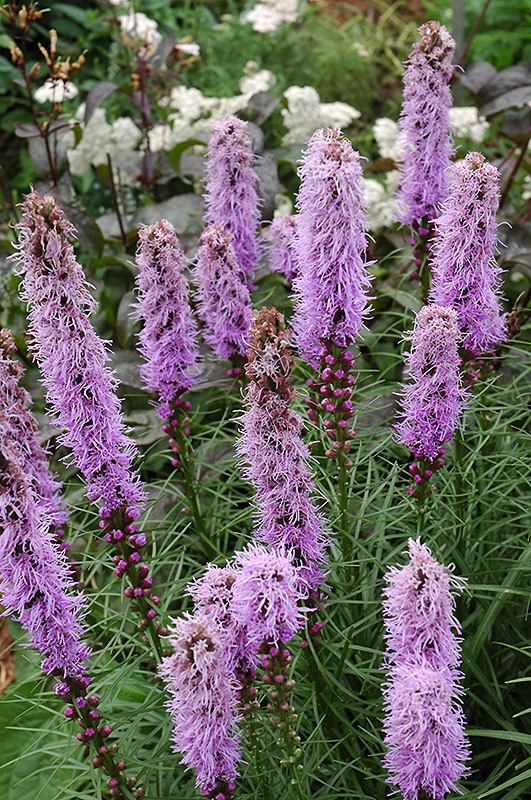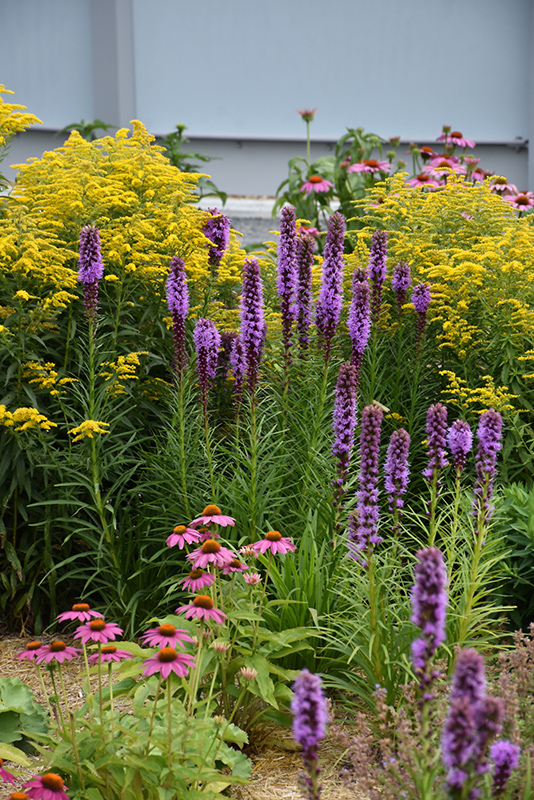Dwarf Purple Gayfeather
Liatris spicata 'Kobold'
Height: 17 inches
Spread: 12 inches
Sunlight:
![]()
Hardiness Zone: 2a
Other Names: Kobold Blazing Star
Ornamental Features
Dwarf Purple Gayfeather has masses of beautiful spikes of violet flowers rising above the foliage from mid summer to early fall, which are most effective when planted in groupings. The flowers are excellent for cutting. Its grassy leaves remain green in colour throughout the season.
Landscape Attributes
Dwarf Purple Gayfeather is an herbaceous perennial with a rigidly upright and towering form. It brings an extremely fine and delicate texture to the garden composition and should be used to full effect.
This plant will require occasional maintenance and upkeep, and is best cleaned up in early spring before it resumes active growth for the season. It is a good choice for attracting butterflies to your yard, but is not particularly attractive to deer who tend to leave it alone in favor of tastier treats. Gardeners should be aware of the following characteristic(s) that may warrant special consideration;
- Self-Seeding
Dwarf Purple Gayfeather is recommended for the following landscape applications;
- Mass Planting
- General Garden Use
Planting & Growing
Dwarf Purple Gayfeather will grow to be about 17 inches tall at maturity, with a spread of 12 inches. It grows at a fast rate, and under ideal conditions can be expected to live for approximately 10 years. As an herbaceous perennial, this plant will usually die back to the crown each winter, and will regrow from the base each spring. Be careful not to disturb the crown in late winter when it may not be readily seen!
This plant should only be grown in full sunlight. It is very adaptable to both dry and moist locations, and should do just fine under typical garden conditions. It is not particular as to soil type, but has a definite preference for acidic soils, and is subject to chlorosis (yellowing) of the foliage in alkaline soils. It is somewhat tolerant of urban pollution. This is a selection of a native North American species. It can be propagated by division; however, as a cultivated variety, be aware that it may be subject to certain restrictions or prohibitions on propagation.




